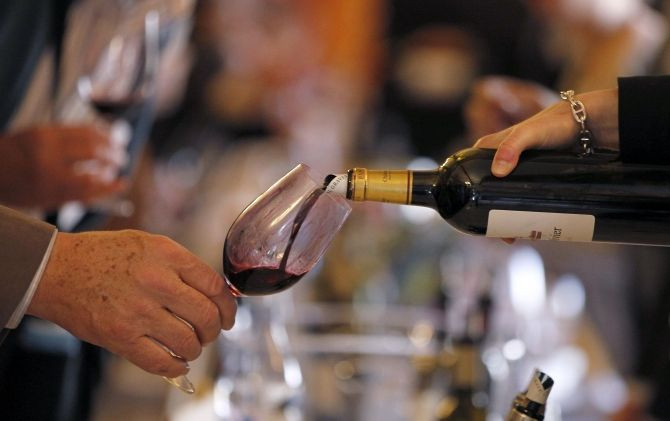Alcohol Makes You the Life of the Party, Increases Social Bonding

Alcohol improves social bonding and enhances positive emotions among the group, says a new study.
Medical daily had recently reported that regular moderate alcohol consumption improves quality of life. One problem with studying alcohol consumption's effect on society is that these studies rarely take place in social settings. It is known that over time, people reduce drinking because they don't meet other people over drinks and so don't feel the need to drink alcohol.
"Those studies may have failed to create realistic conditions for studying this highly social drug. We felt that many of the most significant effects of alcohol would more likely be revealed in an experiment using a social setting," said Michael A. Sayette, professor of psychology in Pitt's Kenneth P. Dietrich School of Arts and Sciences, and lead author of the study.
For the study, researchers recruited 720 male and female participants. These participants were then assembled in small groups. The researchers carefully grouped the individuals together: each participant had to sit with three complete "strangers." Also, they formed groups representing various male-to-female ratios.
Participants were given drinks while they interacted with each other. Each group was randomly assigned to get either alcoholic drinks, non-alcoholic drinks or a placebo beverage.
The interaction lasted for 36 minutes during which the participants had to have three drinks. The conversations were video recorded.
Group and individual interactions were assessed using the Facial Action Coding System (FACS) and the Grouptalk model for speech behavior.
Earlier research has shown that alcohol improves social bonding during initial group formation among men.
Researchers found that alcoholic beverages elevated mood and improved coordination of "true" smiles. Groups that drank alcohol while talking were more "tuned in" with everybody in the group getting involved in the conversation when compared to groups that had non-alcoholic drinks.
"By demonstrating the sensitivity of our group formation paradigm for studying the rewarding effects of alcohol we can begin to ask questions of great interest to alcohol researchers—Why does alcohol make us feel better in group settings? Is there evidence to suggest a particular participant may be vulnerable to developing a problem with alcohol?," said Sayette in a statement.
The study will be published in an upcoming issue Psychological Science.
Published by Medicaldaily.com



























